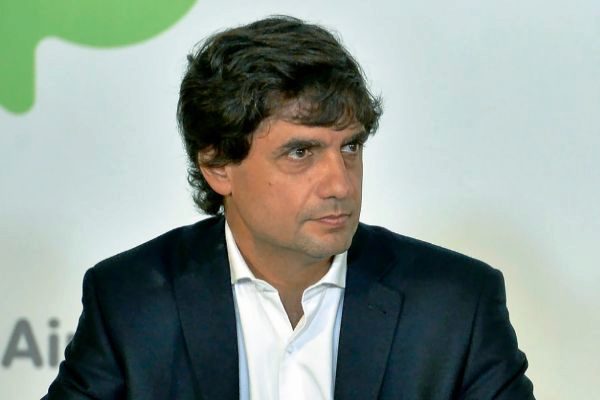Football usually helps explain much of what happens in Argentina, and Hernán Lacunza's rise to the Ministry of Economy is no exception. Skillful midfielder, the brand-new head of the country's economy also manages to stand out as a central defense. Friends and adversaries consider him widely prepared for the challenge that comes to him, but there is an extra fact in his favor, a non-negligible intangible: in recent years he was a stable and prominent member of the soccer pachangas on Wednesday nights in the presidential residence of Olivos, and that makes Lacunza be seen with a plus of sympathy and respect from President Mauricio Macri.
Macri, that president who has repeated for years that politics did not teach him anything that football would not have already given him during his 12 years as president of Boca. It is to that president that Lacunza must report to him, and, above all, it is to that president that the 49-year-old economist has to take the chestnuts out of the fire after the recent departure of the office of his predecessor Nicolás Dujovne.
«I deeply regret that Hernán Lacunza will take charge of this disaster. A professional of his career and integrity would deserve to take charge in a more normal situation ». The phrase, a tweet, is from Guillermo Nielsen , an economist, former Argentine negotiator with the IMF and, in theory, one of Alberto Fernández's economic benchmarks. By triumphing widely in the primaries, the Peronist removed political and economic oxygen from the government of a Macri who is in turn a candidate for reelection: in the past week the peso devalued more than 25%.
According to La Nación, Lacunza always wanted to be Minister of Economy or President of the Central Bank. He was in charge of the economy in the province of Buenos Aires, and came from designing a package of measures to counteract the loss of income that Macri's decisions (lower taxes and disappearance of VAT on essential products, among others) They generated their district.
Now it is on the other side of the table and the goal is exponentially greater: Lacunza must calm the pressure on the weight, avoid an inflationary escalation, generate a sense of relief to consumers and convince the IMF that Argentina is not deviating from the road Orthodox agreed in exchange for 57,000 million dollars of loan. Everything, in the middle of an electoral campaign that closes with the elections of October 27: the challenge is enormous, infinitely more difficult and important than the goals of direct foul that usually gets in the parties with ministers.
"I trust he is the right person for the new stage," said Macri. To get closer to those multiple objectives, Lacunza will need a fluid round trip with the president of the Central Bank, and the new head of the economy has it, because Guido Sandleris was secretary of Finance in his ministry for a few months of 2016.
In good relation with Peronism, Lacunza was dismissed in 2010 from the Central Bank when he refused to transfer the reserves to a National Treasury account. Cristina Kirchner, now a vice president of Fernández, ruled.
"He is someone who looks at public accounts, but also with a social and productive profile," Infobae said today. His calm is total, he is used to dealing with very serious problems ».
Skilful and tough negotiator, he was in Patagonia, in the south of the country, on a skiing holiday with his family when Macri summoned him. That Saturday night, when landing in Buenos Aires, he found that Racing, his team, had lost as host 6-1 to River, a defeat for history. Huge blow and little auspicious landing in the capital, but just an anecdote compared to what will be found from Tuesday, when the financial markets reopened after Monday's holiday. The Argentine economy asks for the time, and Lacunza will need all his talents, and something else, so that Argentina's match does not end like Racing.
According to the criteria of The Trust Project
Know more- Argentina
- Santander Racing
- IMF
- Boca Juniors
- sports
Macroeconomics The IMF cuts global growth due to the US-China trade war and Brexit
Economy The Argentine peso in free fall: another 7.5% is devalued and the risk premium touches 10-year highs
Economy The Argentine crisis leaves 5,750 million euros of Spanish investment in the 'Macri era'

